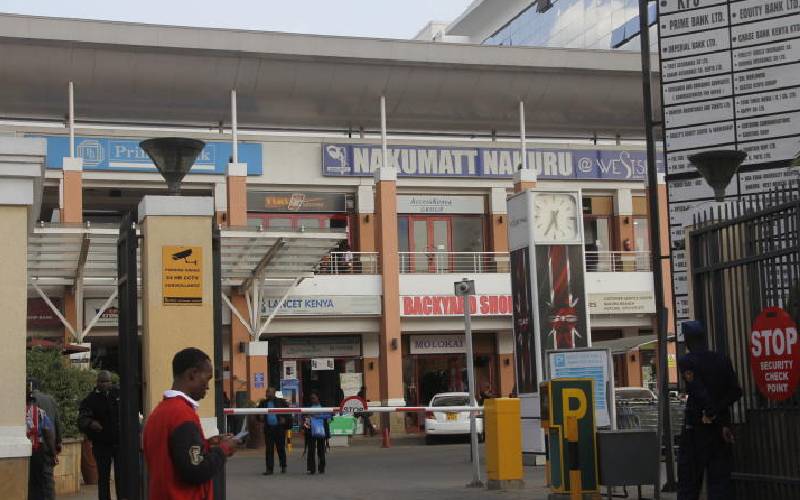Nakumatt Supermarket at West Side Mall in Nakuru: [Harun Wathari,Standard] In 2016, Nairobi Business Ventures (NBV) was one of the most hyped listings at the Nairobi Securities Exchange (NSE).
NBV was the first foot wear firm to trade at the bourse and the founders targeted to sell ten million shoes annually.
The retailer, which operated the KShoe brand and sold leather accessories, had six branches with the best outlet making Sh4 million every month. READ MORE
However, expansion dreams were soon shattered and NBV spiraled into a loss making path.
It added to the list of collapsed supermarkets and fashion stores that have earned Kenya the moniker of ‘retail graveyard.’
The last five years have seen the exit of famous brands such as Deacons and Nakumatt.
For the financial year 2019 – 2020, NBV recorded zero sales resulting in a lost of Sh39.5 million. Creditors were also on its neck and liquidation loomed large.
Vasu Abotula, NBV’s founder, had no choice but to sell a majority stake to a strategic investor.
Now the firm will diversify into manufacturing after the buy out by Dubai-based Delta International FZE.
Insolvency is a reality for many businesses.
This comes when an entity’s liabilities (debts) outweigh its assets and the entity is unable to meet its debt obligations when they fall due.Liquidation or winding-up is the legal term for the termination or dissolution of a company.It is comparable, in some ways, with the death of an individual or when an individual runs bankrupt.When we speak of bankruptcy, we refer only to individuals and persons trading as partners because a limited company cannot be made bankrupt but insolvent.Sadly, most times some firms cannot be rescued. According to Peter Kahi, an elite insolvency practitioner at audit firm PKF, this is when firms enter the bottom zone of what is referred to as the ‘distress curve ’, or ‘slippery slope’ in audit circles.The first stage under-performance, which is marked by losses. The distress stage follows, where key ratios in the balance sheet are senseless. Finally, there is the crisis stage where a business has completely run out of cash.Enterprise explores what happens to a company when financial distress strikes Going under administration The Insolvency Act of 2015 is credited with bringing sanity to how companies are wound up.One of the processes laid out is administration.This offers companies a lifeline by giving them a 12-month chance for a turnaround as opposed to immediate liquidation.In administration, all […]
